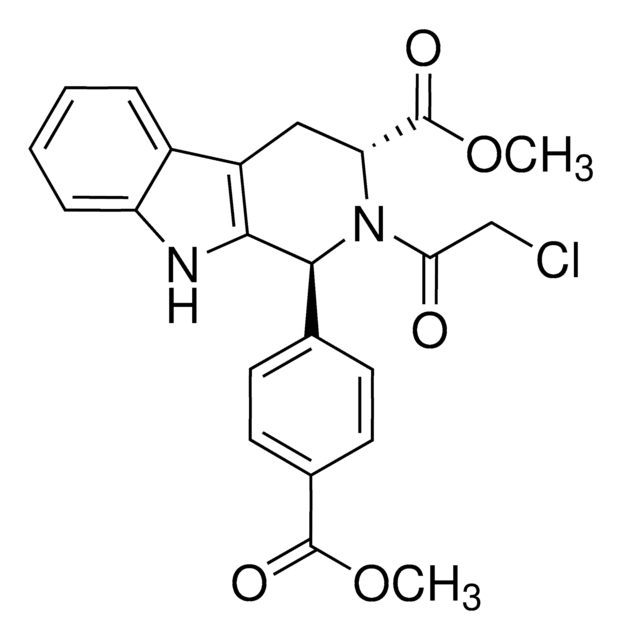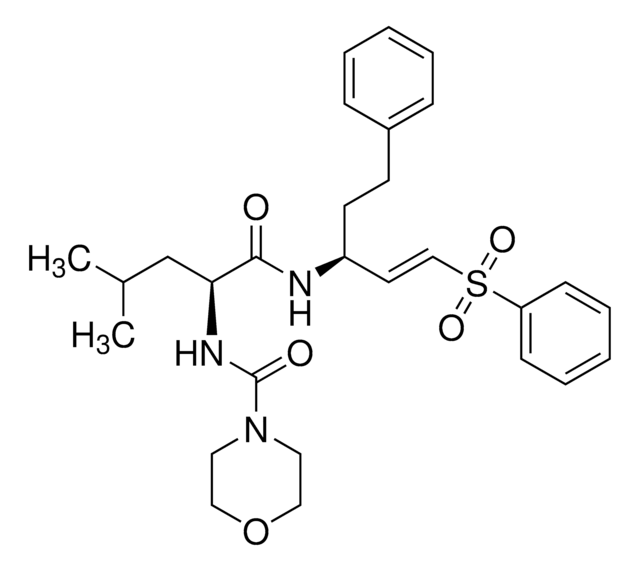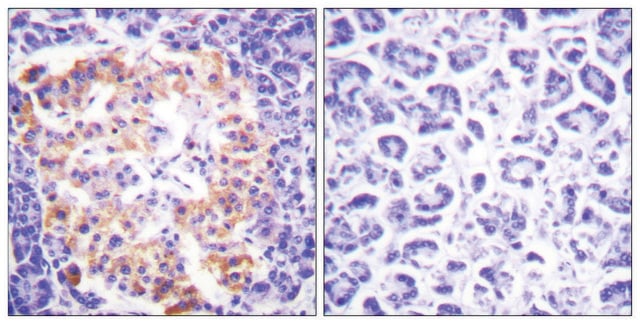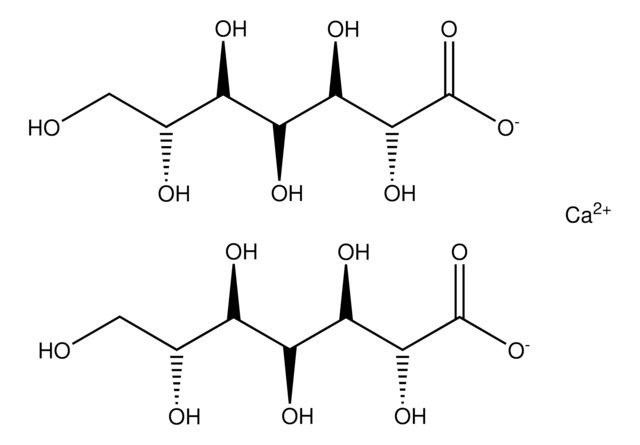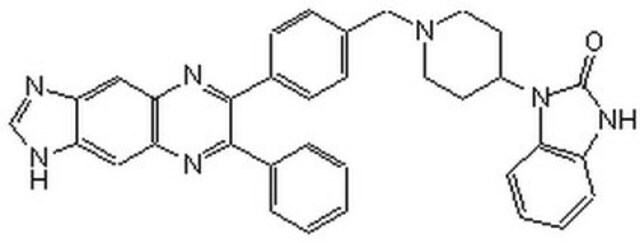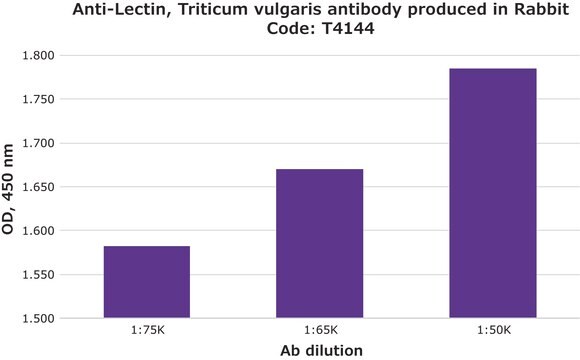SML0382
KU 0063794
≥98% (HPLC)
Synonym(s):
rel-5-[2-[(2R,6S)-2,6-Dimethyl-4-morpholinyl]-4-(4-morp holinyl)pyrido[2,3-d]pyrimidin-7-yl]-2-methoxybenzenemethanol
About This Item
Recommended Products
Quality Level
assay
≥98% (HPLC)
form
powder
color
white to beige
solubility
DMSO: >2 mg/mL (warmed)
storage temp.
2-8°C
SMILES string
COc1ccc(cc1CO)-c2ccc3c(nc(nc3n2)N4C[C@H](C)O[C@H](C)C4)N5CCOCC5
InChI
1S/C25H31N5O4/c1-16-13-30(14-17(2)34-16)25-27-23-20(24(28-25)29-8-10-33-11-9-29)5-6-21(26-23)18-4-7-22(32-3)19(12-18)15-31/h4-7,12,16-17,31H,8-11,13-15H2,1-3H3/t16-,17+
InChI key
RFSMUFRPPYDYRD-CALCHBBNSA-N
Application
- as a mammalian target of rapamycin (mTOR) inhibitor to study the effects of follicular stimulating hormone (FSH) in mTOR phosphorylation and vascular cell adhesion molecule-1 (VCAM-1) expression in human umbilical vascular endothelial cells (HUVECs)
- as a mTOR inhibitor to treat effector memory (EM) CD8+ T cells for metabolic flux analysis
- as an autophagy inducer to demonstrate the utility of p62 and LC3B-II quantification in HEK293T cells and primary cultures of rat neurons and astrocytes using time-resolved fluorescence resonance energy transfer (TR-FRET)
Biochem/physiol Actions
Features and Benefits
Storage Class
11 - Combustible Solids
wgk_germany
WGK 3
flash_point_f
Not applicable
flash_point_c
Not applicable
Certificates of Analysis (COA)
Search for Certificates of Analysis (COA) by entering the products Lot/Batch Number. Lot and Batch Numbers can be found on a product’s label following the words ‘Lot’ or ‘Batch’.
Already Own This Product?
Find documentation for the products that you have recently purchased in the Document Library.
Customers Also Viewed
Articles
We offer many products related to PKB/Akt for your research needs.
Our team of scientists has experience in all areas of research including Life Science, Material Science, Chemical Synthesis, Chromatography, Analytical and many others.
Contact Technical Service